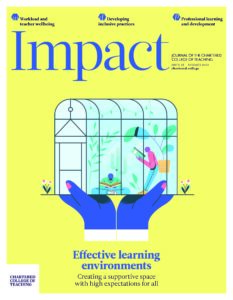Latoya van der Meer, Kings Education, UK Dr Liam Guilfoyle, University of Oxford, UK
Introduction
Developing local school policies and implementing them is never easy. School leaders who aim to do this quickly may provide teachers with policy texts in the hope that this leads to the actions that they envisage. However, policies are much more than the texts we write. Policy comprises messy social interactions that draw on teachers’ passion, creativity, judgement and interpretations of the context in which they are to be applied (Ball et al., 2011). Teachers are not just objects of policy but also have varying roles in bringing policy about. Thus, their values, interests, beliefs and attitudes towards new policy initiatives must be considered (Farrell and Kun, 2008). Furthermore, given that schools have differing histories, buildings, student intakes, local communities and staffing profiles, what may work for one school may not work for another. At Kings Education Oxford, an
Join us or sign in now to view the rest of this page
You're viewing this site as a guest, which only allows you to view a limited amount of content.
To view this page and get access to all our resources, join the Chartered College of Teaching (it's free for trainee teachers and half price for ECTs) or log in if you're already a member.











